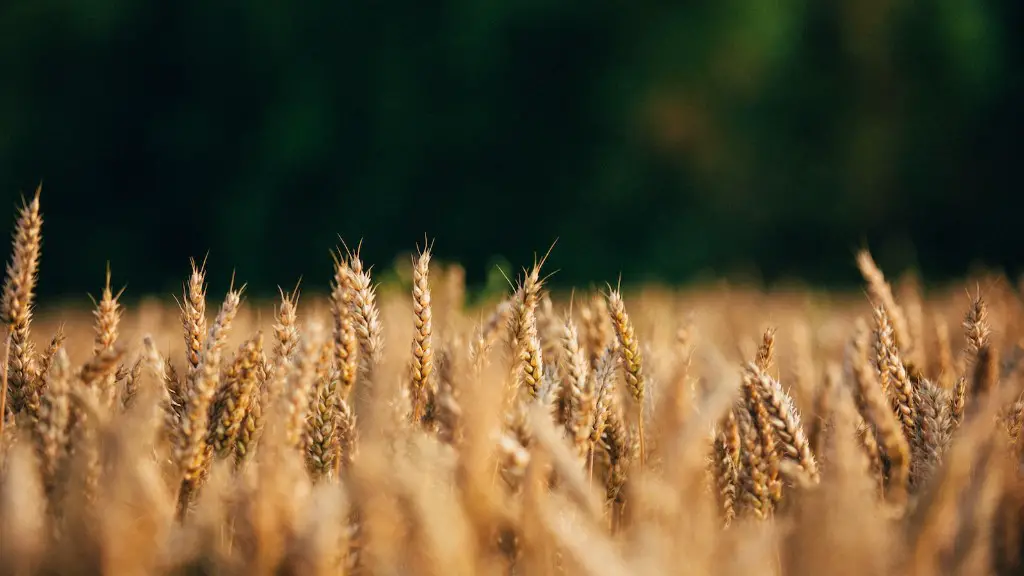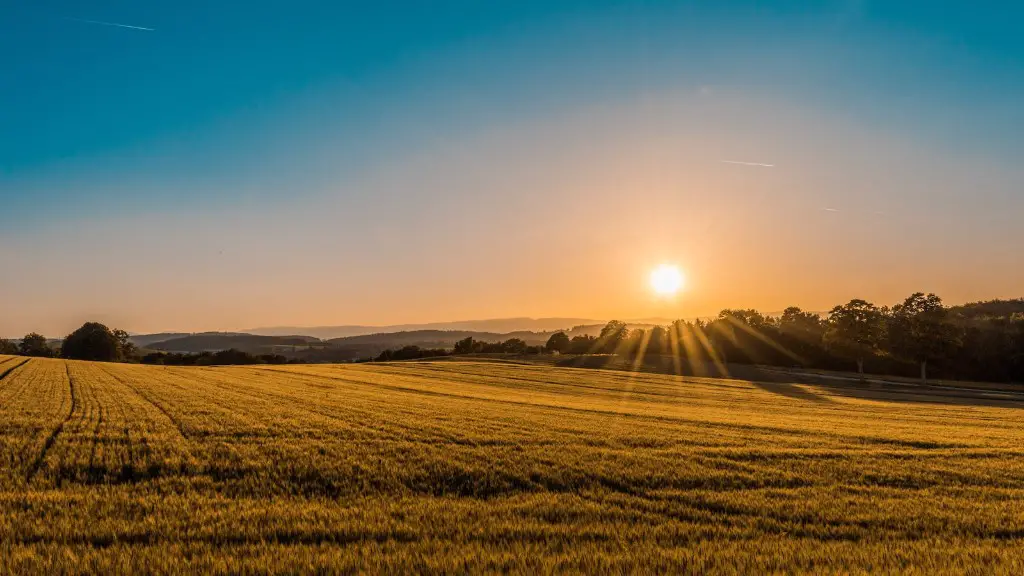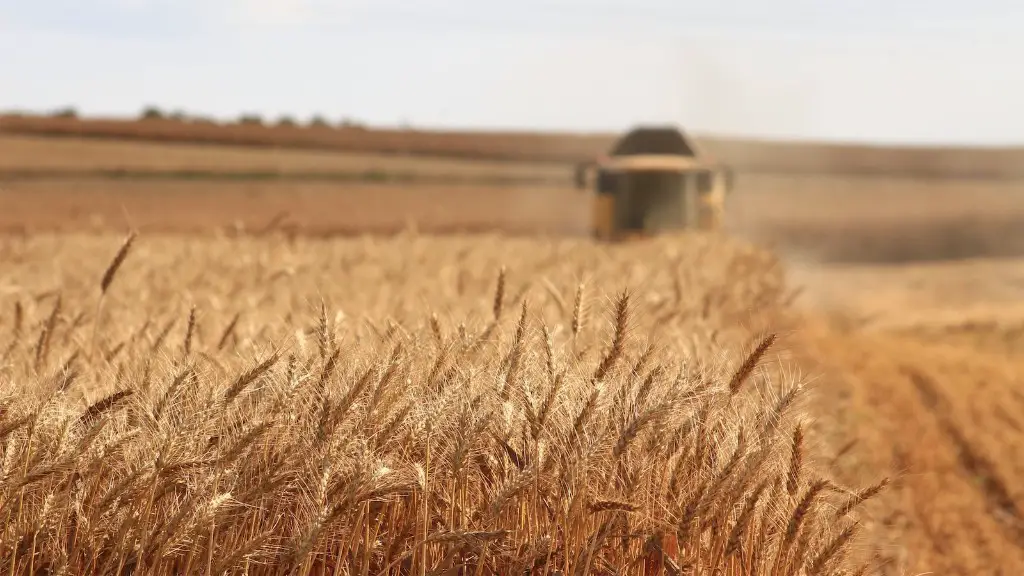Agriculture is a leading cause of deforestation. The demand for agricultural and land resources has driven the ongoing deforestation of vast swathes of forests in many parts of the world. Deforestation on an industrial scale, driven by commercialised agriculture and the conversion of forests to croplands or pasture, has been the largest driver of habitat loss and biodiversity loss in the world for centuries. The result of this is the loss of invaluable habitat for plants, animals and even human communities, as well as reducing the availability of key resources like timber, water and soil. Therefore, it is clear that agricultural deforestation is a critical issue that needs to be addressed.
How Agriculture Causes Deforestation
Agriculture is one of the main causes of deforestation due to the large areas of forest land required to produce crops and animal feed. In fact, it is estimated that up to 40 per cent of the total deforestation occurring around the world is a result of agricultural activities. In addition, the use of agrochemical fertilisers, herbicides and pesticides as well as mono-cropping, intensive animal husbandry and the draining of wetlands for agricultural production can all contribute to the destruction of forest land. This extinction of habitat for species and reduction of biodiversity, are two of the main outcomes of the deforestation due to commercialised agriculture.
Why Deforestation is Negative for the Environment
The destruction of forests due to agricultural deforestation can significantly affect the delicate balance of various ecosystems. It is estimated that up to 15 per cent of global warming is due to deforestation, due to the amount of carbon dioxide that is released into the atmosphere as a result of the huge increase in emissions. The soil quality is also greatly reduced when forests are cleared, due to the leaching of vital nutrients and minerals, which can reduce its fertility. Moreover, pollen, water and dust particles are not filtered out of the atmosphere, which can have a detrimental effect on surrounding areas.
The Socio-Economic Implications of Deforestation
In addition to the potential environmental consequences discussed above, agricultural deforestation can also have direct socio-economic impacts. This is especially true in developing countries, where rural livelihoods are dependent on forests for subsistence and income. For example, when forests are cleared for agricultural production, vital resources such as food, medicines, building materials and fuelwood are no longer available. This can have a negative impact on the health and wellbeing of those communities, especially if other income generating activities are lacking.
How To Combat Agricultural Deforestation
To address this problem, governments must take steps to reduce deforestation by investing in reforestation initiatives, promoting market-based approaches such as payments for ecosystem services and limiting subsidies that support unsustainable agricultural practices. On a more local level, farmers must also look to implement biodiversity-friendly practices, such as sustainable agroforestry systems and diversification of crop production. Furthermore, it is necessary to ensure that land rights are respected and that smallholder farmers have access to information and resources that can help them to make sustainable decisions.
Deforestation’s Impact on Climate Change and Carbon
Agricultural deforestation is not only an ecological issue, it’s an economic and social issue as well. One of the main effects of deforestation is its contribution to climate change and the release of greenhouse gases. When forests are cleared for agricultural purposes, particularly for the production of commodities such as palm oil and soy, the amount of carbon stored in the trees is released into the atmosphere, causing temperatures to rise and having potentially devastating long-term impacts. In addition, forests play an important role in capturing and storing carbon, and their destruction further reduces the natural ability of the environment to absorb carbon. Thus, it is clear that the deforestation resulting from agriculture is a major contributor to climate change and global warming.
Long-term Effects of Agricultural Deforestation on Rural Communities and the Planet
The long-term effects of agricultural deforestation on rural communities and the planet are far-reaching and concerning. Not only does deforestation lead to a decline in biodiversity and increased climate change, it also leads to a decline in the availability of vital resources such as clean water and fertile land, reducing local food security and impacting local livelihoods. Additionally, deforestation increases the risk of soil erosion, caused by wind and water, and may lead to landslides or flooding in hill or mountainous areas. All of these factors combined prove how important it is to reduce the amount of deforestation caused by agricultural activities.
Agriculture, Deforestation and Fair Trade
One of the ways in which we can address deforestation and combat its negative effects, is to prioritise and support sustainable agricultural practices. This begins with recognising the importance of ‘Fair Trade’ in the production of agricultural goods and ensuring that producers are paid a fair price for their goods. It is also important to ensure that industrial-scale solutions, such as agroforestry and precision agriculture, are employed whenever possible. These solutions can help to reduce deforestation and can even help to reforest areas that have been destroyed, whilst promoting environmental friendliness and economic sustainability.
The Link Between Agriculture and Consumer Habits
Finally, it is important to acknowledge that consumer habits, such as the use of unsustainable products, can also have a significant impact on deforestation. In order to reduce the destruction of forests, consumers need to make conscious decisions about the products they buy and consume, and the companies they source them from. By focusing on promoting sustainable supply chains and focusing on ethical consumerism, we can help to reduce deforestation and its associated impacts, while fostering more sustainable practices across the agricultural industry.


